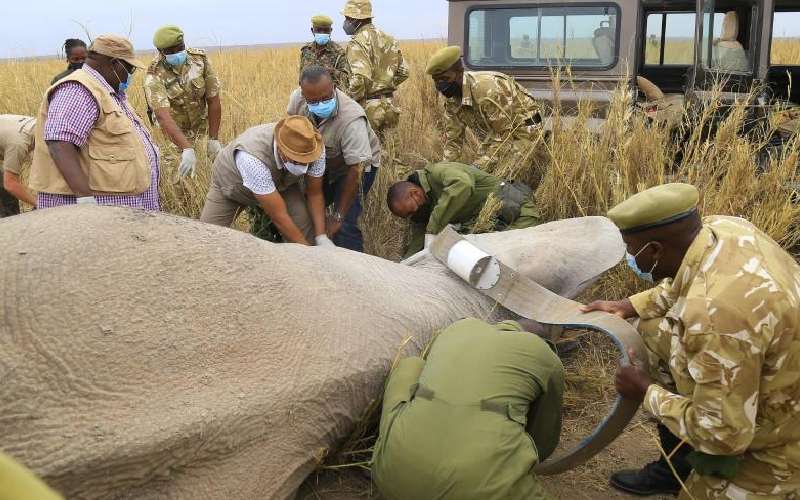×
The Standard e-Paper
Join Thousands Daily

Tourism and wildlife CS Najib Balala, Kajiado Governor Ole Lenku (blue checked shirt) witness the collaring of elephants before the start of the Tembo Naming Festival held on Oct 10 at Amboseli National Park.
Kenya’s wildlife and natural resources are key tourist attractions. Travellers visit our national parks, reserves, and conservancies to see wildlife in natural habitats. Without a doubt, Safari is and will continue to be one of our prime tourist offerings alongside the beach and other attractions and experiences.